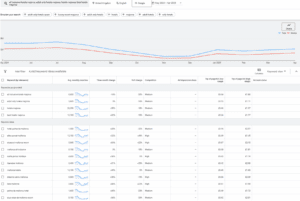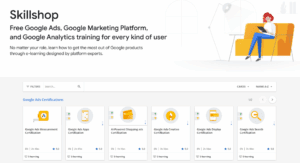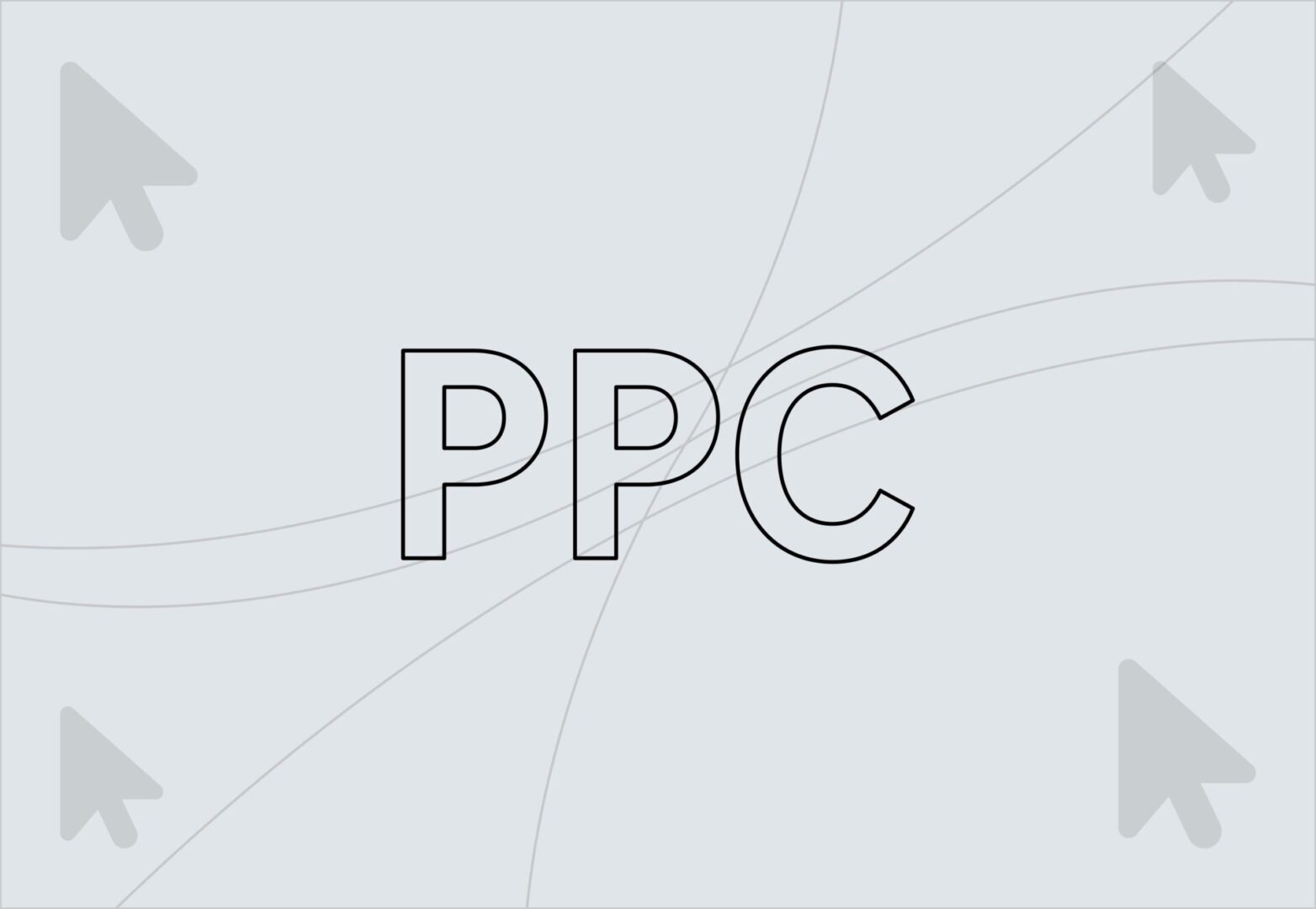If you are considering a career in digital marketing, pay-per-click (PPC) is a great route to go down. PPC is fast paced, results driven and offers a perfect blend of data analysis and creative strategy within an ever evolving landscape. Alongside this, getting started in PPC doesn’t require a marketing degree or years of experience, the fundamentals can be learnt through free resources and online courses. PPC teaches a wide range of transferable skills , providing a deeper understanding of consumer behaviour and how to align marketing efforts with wider business goals.
What actually is PPC?
PPC is a key branch of digital marketing in which advertisers pay publishers when a user clicks their ad. Unlike organic strategies, such as SEO, PPC allows businesses to bid on specific keywords or phrases that they want their ads to appear for on the selected platform whether that be a search engine or a YouTube video ad.
PPC involves advertisers using strategy with the goal of their ads appearing at the top of the results page, thus encouraging more clicks and more opportunity for conversions. It involves measurability and control, you set the budget, choose your audience and are able to track every click, conversion and spend. PPC provides a direct route to results and flexibility to scale campaigns based on performance which is extremely rewarding.
The most common use of PPC is within search engines, involving bidding on keywords to show ads in response to user queries. However, it also includes display ads on websites, shopping ads for ecommerce products and video advertising through platforms like YouTube. Google Ads & Microsoft Ads are the two main platforms in which PPC is executed, offering a wide range of campaign types and targeting options. Both of the platforms provide tools for managing and optimising ads, making them essential in PPC strategy.
Understanding PPC acronyms
An important start to not just PPC but the world of digital marketing is understanding all the acronyms that get used.
- PPC = pay per click.
- CPC = cost per click. The amount you pay for each click on your ad.
- CTR = click through rate. The percentage of users who click on your ad after seeing it.
- QS = Quality Score. A Google Ads rating (1-10) of your ads, keywords and landing pages based on relevance and performance.
- CPA = cost per acquisition. The cost to acquire a conversion.
- ROAS = return on ad spend. Revenue generated from for every dollar spent on advertising.
- CPL = cost per lead. How much you pay for each lead generated through ads.
- CPM = cost per mille (thousand impressions). What you pay per 1,000 ad impressions.
- KPI = key performance indicator. Metrics used to evaluate campaign success.
- RSA = responsive search ad. A Google ad format where you provide multiple headlines and descriptions then Google auto-tests combinations.
- DSA = dynamic search ad. Ads that automatically generate headlines and URLs based on website content.
- LTV = lifetime value. A prediction of the net profit attributed to the entire future relationship with a customer.
- GA = Google Analytics. A platform for tracking and reporting website traffic and performance.
- GMC = Google Merchant Centre. Where product feeds are uploaded for Google Shopping ads.
- GTM = Google Tag Manager. A tool to manage and deploy tracking codes without editing code directly.
How does PPC work?
Having a basic understanding of what PPC actually entails is, unsurprisingly, extremely valuable in getting started.
Keyword research:
This is the foundation of any PPC campaign, involving identifying search terms that target customers are using to find products or services similar to yours. The keywords help determine when and where ads will appear. Keyword research tools such as Google Keyword Planner, SEMrush and SpyFu are helpful in discovering high volume keywords that align with the business. Another critical aspect of keyword research is understanding the user intent behind each keyword.

Ad creation:
Once keywords are chosen the next step is to create the ads. It is key that the headlines and descriptions copy is clear, digestible and showcasing the brands USPs clearly. Selecting the most relevant final URL ensures more seamless user experience. Ad extensions such as sitelinks, callouts and phone numbers can further enhance visibility and performance. It is the goal to encourage users to click your ad instead of that of a competitor therefore ensuring ad copy is strong is a key aspect to campaign success. Strong ad copy often focuses on the benefits of a user using your brand, addresses any pain points and will include a call to action such as “Get In Touch Today or “Buy Now”.
Landing pages:
Encouraging users to click the ad is only the beginning of the journey, the landing page is just as powerful. A well optimised landing page would be directly relevant to the ad and keyword that brought the user there. The landing page should have a fast page speed, be compatible with all devices, visually appealing and be designed to make it easy for the user to complete the conversion. Mismatched or poorly designing landing pages risk high bounce rates and ultimately wasted ad spend.
Bidding strategy:
PPC platforms operate on an auction based system, in which you bid on keywords and the ad competes with others targeting the same terms. However, the highest bidder doesn’t always win. Platforms like Google Ads consider multiple factors including your maximum bid, ad relevance and expected CTR. Selecting the right bidding strategy that aligns with your goals is essential for balancing cost and performance.
Ad rank and quality score:
Google uses metrics called Ad Rank to determine which ads appear and in what order. This is influenced by your bid amount, the quality of your ad, landing page experience and expected CTR. The Quality Score is a rating from 1 to 10 that reflects the overall effectiveness and relevance of your campaign. A higher Quality Score can result in better placements at a lower cost.
Campaign settings:
PPC allows for precise targeting in which you can narrow your audience by demographics, location, device, language, time of day and even specific behaviours. These settings enable reach of the users who are most likely to convert thus improving ROI and reducing ad spend.
Monitoring and optimisation:
Launching a strong PPC campaign is key in the success of your management however it is just as important to carry out continuous monitoring and optimisations. Monitoring performance metrics such as impressions, clicks, CTR, CPC, conversions and ROAS is essential. Based on what this data shows, you can refine keywords, ad copy, targeting and budget. PPC success is an ongoing process of testing, learning and adjusting.
Why choose a career in PPC?
PPC is great for those who enjoy working with numbers, analysing data and making informed decisions. Unlike other branches of marketing, PPC mostly provides immediate feedback as you can track clicks, impressions, conversions and ROAS in real time. This performance transparency allows testing of ideas, quicker adjustments and being able to see the direct impact of your work.
Digital marketing is one of the fastest growing industries globally and PPC is a huge driver of this. Companies across all sectors are investing heavily in paid search to gain visibility and generate leads. Platforms such as Google Ads and Microsoft Ads dominate the market therefore there is a clear requirement for professionals within PPC.
Working within PPC allows development of a wide range of valuable skills, including keyword research, ad copy writing, landing page optimisation, bid strategy management, A/B testing and campaign analytics. These technical and strategic skills are highly transferable for broader roles within digital marketing.
Although PPC is highly analytical, it does offer the option to be creative. Writing effective ad copy, testing different headlines, designing landing pages and creating engaging ad assets all require creative thinking. The blend of data and creativity allows every day to present new challenges and opportunities to improve performance through both logic and innovation which is really fulfilling.
Google Ads certifications
A great way to get started in PPC is completing the free Skillshop Google Ads certifications. They are professional credentials offered by Google that validate your proficiency in a variety of aspects of Google Ads. The certifications are widely recognised in the digital marketing world and can significantly enhance your credibility. They are within the Google Skillshop platform and each certification focuses on a specific area of Google Ads such as Search, Display, Video, Performance Max, Shopping and Measurement. Completing the certification means you’ve passed an exam that demonstrates your knowledge of best practices, campaign setups, optimisation strategies and platform functionality.

The main Google Ads Certifications;
- Google Ads Search Certification : focuses on the fundamentals of creating and optimising ads in Google Search campaigns with topics including keyword strategy, ad creation, bidding and measuring performance.
- Google Ads Display Certification : covers the creation and optimisation of display campaigns across the Google Display Network.
- Google Ads Video Certification : concentrates on Youtube and video campaign strategies, including how to create effective video ads.
- Shopping Ads Certification : designed for ecommerce advertisers, focuses on creating and managing Shopping campaigns integrating Google Merchant Centre and Google Ads.
- Apps Certification : Focuses on promoting mobile apps through Google Ads.
- Measurement Certification : Places emphasis on data analysis and conversion tracking. It helps marketers understand how to measure and interpret campaign performance to drive better results.
Benefits of working in PPC
One of the biggest benefits of working in PPC is the ability to see the direct results of your work. Every click, conversion and sale can be tracked and attributed to specific campaigns. Therefore this data driven environment allows you to understand what is working to make informed decisions and continuously improve outcomes. For people who like to see the tangible impact of their efforts, PPC provides immediate and satisfying feedback.
The PPC world is dynamic and ever evolving. Google Ads, specifically, regularly update their features and algorithms. Staying current with trends, testing new strategies and optimising campaigns using the recent updates keeps work interesting and fun. There is always something new to catch-up on and learn and PPC offers a great blend of creativity and analytical thinking. Where data analysis and keyword targeting is crucial, writing strong ad copy and creating effective assets is also. The combination of both means you get to leverage both technical and creative skill sets.
PPC careers are also very flexible, you can work in-house for a brand, join a digital agency or build your own freelance or consulting business. As with a lot of experience, beginning a career in PPC doesn’t just silo you to PPC, it provides opportunities to transition into broader roles within digital marketing, strategy or leadership as well.
PPC requires constant analysis of campaign performance, such as evaluating metrics like CTR, conversion rates, CPC and ROAS. This, therefore, provides the skills to interpret data and make decisions based on insights.
Running PPC campaigns provides firsthand insight into how different audiences behave online. What they search for, which type of messaging resonates and what exactly leads the user to take the desired action. Thus, encourages the development of a user centric mindset which is highly transferable and valuable.
To succeed in PPC, you often need to work alongside teams managing SEO, social media, content, and email marketing. This collaboration gives you a well rounded understanding of how all digital marketing channels work together.
Starting a career in PPC is not only extremely achievable but full of opportunity. It is an area where having curiosity, attention to detail and a willingness to test and learn goes a long way. With so many free tools and certifications available, like Google Skillshop, getting started is very accessible.
PPC offers a fast paced environment where results are clear and measurable. You can see in real time what is working and what isn’t, being able to use that insight to shape strategies for the future. It is a perfect career for people who enjoy a balance of analytical thinking and creativity through writing ad copy, testing visuals and constantly tweaking campaigns to improve performance.
As digital marketing continues to grow, PPC remains a vital channel for businesses of all sizes therefore meaning the demand for PPC experts is only going to increase. Whether you want to work in-house, within an agency or freelance, the skills you develop in PPC are highly valuable and widely transferable across the entire digital landscape.
If you’re looking for a career that is rewarding and full of learning potential, PPC is a great option.












